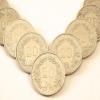The Dutch government is asking the European Commission to look at other ideas rather than its proposed tax on financial trades. The Netherlands Bureau for Economic Policy Analysis, the Dutch financial markets regulator AFM and the Dutch central bank have all concluded that the tax would hurt their economy.
As Dutch Finance Minister Jan Kees de Jager wrote in a letter to the Dutch parliament, “The analyses from CPB, DNB and AFM make clear that the tax is not an efficient way to make the financial sector contribute well to government income. Besides that, the tax does not help to make the financial sector more stable.”
The proposal offered by the commission wanted to create a transaction tax to help governments to deal with their finances after the bank bail outs in 2008. The commission predicted that the tax would generate an estimated EUR57 billion in revenues if it were introduced across the board in all 27 EU countries.
The CPB, however, says that the tax would raise unemployment by .5% and suppress the Dutch GDP by somewhere between .4% and 1.2%. The Dutch Finance Minister has argued that the tax would hit the Netherlands harder than other countries because it has a larger financial sector.


